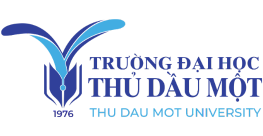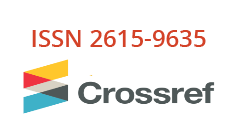References
Accounting Education Change Commission (AECC).(1990). Objectives of education for accountants: Position Statement No1. Issues in Accounting Education. (Fall). 307-312. Retrieved from http://aaahq.org/AECC/pdf/position/pos1.pdf
Accounting Education Change Commission (AECC).(1992).The First Course in Accounting:
Position Statement No.2. Issues in Accounting Education. (Fall). 330-331. Retrieved from http://aaahq.org/AECC/pdf/position/pos2.pdf
Albrecht, W.S., and Sack, R.J. (2000). Accounting Education: Charting the Course through a
Perilous Future. Accounting Education Series, Volume 16. Sarasota, FL: AAA.
Black, W. H. (2012). The activities of the pathways commission and the historical context for changes in accounting education. Issues in Accounting Education, 27(3), 601-625.
Bonner, P. (2012). Commission issues seven recommendations for bolstering the future of accounting education. Journal of Accountancy, 214(4), 38.
Camp, J. M., & Schnader, A. L. (2010). Using debate to enhance critical thinking in the accounting classroom: The Sarbanes-Oxley Act and US tax policy. Issues in accounting education, 25(4), 655-675.
Diller-Haas, A. (2004). Time to change introductory accounting. The CPA Journal, 74(4), 60.
Dresnack, W.H. & Callahan, C. III. (1998) The User Approach Versus the Traditional
Approach: A Comparison of the Effects of Introductory Accounting Course Work on Student Success in the Introductory Finance Course. Department of Business Administration and Economics. State University of New York College , Brockport.
Etter, E.R., Burmeister, S.L, & Elder, R.J. (2000). Improving Student Performance and Retention via Supplemental Instruction.Journal of Accounting Education, 18, 355-368. Doi: 10.1016/S0748-5751(01)00006-9
Halabi, A. K. (2005, June). Accounting tele teaching lectures: issues of interaction and performance. In Accounting Forum (Vol. 29, No. 2, pp. 207-217). Taylor & Francis.
Jackling, B., & De Lange, P. (2009). Do accounting graduates‘ skills meet the expectations of employers? A matter of convergence or divergence. Accounting Education: an international journal, 18(4-5), 369-385.
Kavanagh, M. H., & Drennan, L. (2008). What skills and attributes does an accounting graduate need? Evidence from student perceptions and employer expectations. Accounting & Finance, 48(2), 279-300.
Madsen, P. E. (2015). Has the quality of accounting education declined?. The Accounting Review, 90(3), 1115-1147.
Malgwi, C.A. (2004). Determinants of accounting anxiety in business students. Journal of College Teaching and Learning, 1(2).81-94.
McBride, H., Hannon, S., & Burns, B. (2005). Developing critical thinking abilities in business and accounting graduates. Irish Accounting Review, 12(2).
Mladenovic, R. (2000). An investigation into ways of challenging introductory accounting students' negative perceptions of accounting. Accounting Education, 9(2), 135-155.
Pathways Commission. (2012). The Pathways Commission: Charting a national strategy for the next generation of accountants. Retrieved November, 1, 2012.
Scrivener, J. (1994). Learning Teaching. Macmillan Books for Teachers. Macmillan Education.
Spiceland, C. P., Spiceland, J. D., & Schaeffer III, S. J. (2015). Using a course redesign to address retention and performance issues in introductory accounting. Journal of Accounting Education, 33(1), 50-68.
Turner, M., & Baskerville, R. (2013). The experience of deep learning by accounting students. Accounting Education, 22(6), 582-604.
Turner, K. G., Lesseig, V. P., & Fulmer Jr, J. G. (2006). Motivation in the first accounting course. The CPA Journal, 76(5), 66.























